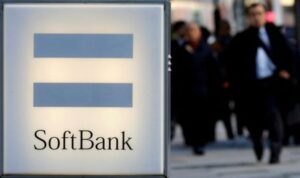By Michael S. Derby
(Reuters) -The Federal Reserve is planning new steps to ensure officials and top staff are complying with financial trading and ethics rules put in place last year, it said in a report on Monday.
The report, released Monday by the central bank’s in-house watchdog, the Office of the Inspector General, or OIG, argued that more central bank staff should be covered by the rules.
More work can be done on the process of filing disclosure reports and verify their accuracy, while clarifying how those who violate the rules will be held accountable, it said.
The Fed’s Board of Governors concurred with much of the IG report findings and offered timelines and processes for meeting the recommendations. A Fed spokesperson declined to comment beyond the Board’s formal responses in the report.
“We take seriously the need to ensure the effectiveness of the [Federal Open Market Committee’s] Trading and Investment Policy, and we look forward to addressing the OIG’s recommendations,” Fed Chairman Powell said in the IG’s report.
The watchdog’s report is the latest development in a long running effort by the central bank to impose limits on officials’ and staff financial activities.
In 2021, the leaders of the Dallas and Boston regional Fed banks retired early after their financial disclosure statements showed they’d actively traded in financial markets while setting monetary policy, even as that trading was consistent with rules then in place.
Other Fed officials have also faced heat for their trading activities, including Powell and former Vice-Chairman Richard Clarida. Meanwhile, last year Atlanta Fed leader Raphael Bostic acknowledged some of his investment activity inadvertently happened at forbidden periods.
The IG is still looking into the trading of regional Fed officials.
The Fed formalized new rules that sharply restricted what Fed officials and senior staff can trade and when they can do it, and required pre-approval for trades as well in February of last year. The new rules were aimed at ensuring central bankers are setting monetary policy for the good of the nation and not their own personal financial positions.
The Fed said in response to the IG recommendations that by the second quarter of next year it plans to have a system to verify that information disclosed by officials and staff is accurate. But according to the report, some at the central bank viewed the process as burdensome and possibly even unnecessary.
“A Board official stated that requiring brokerage statements from covered individuals would be a significant resource requirement and may not be worth the burden or cost,” the report said, adding “another Board official stated the Board does not have a problem that necessitates reviewing brokerage statements and that requiring them would be excessive.”
The Fed also said in the report that by the end of this year, it would offer a formal draft on how violations of the trading policy would be enforced, and who would be responsible for imposing any sanctions.
(Reporting by Michael S. Derby; Editing by Mark Porter and Conor Humphries)





